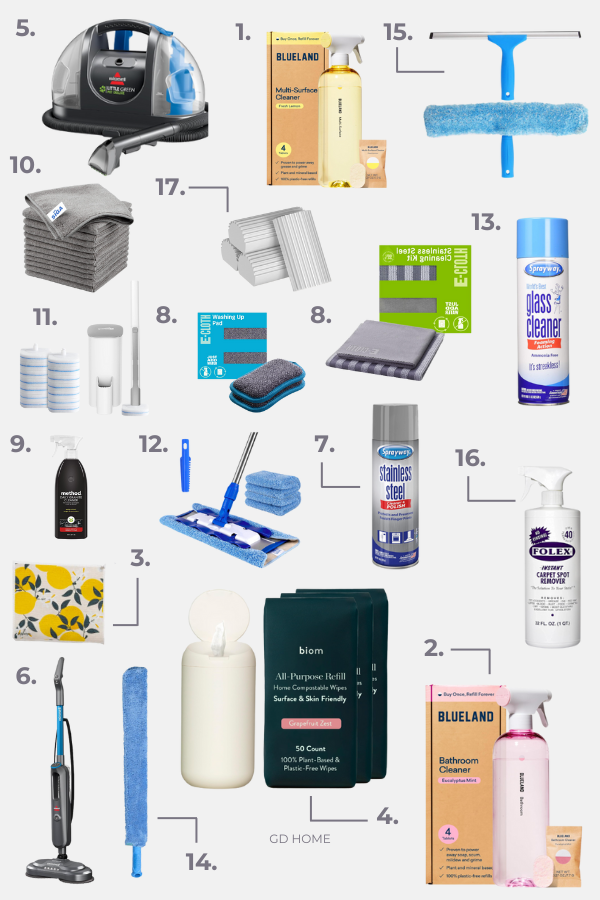A Homebuyer’s Guide to Real Estate Closing Costs
First time home buyers often make the mistake of saving up for a down payment without budgeting for real estate closing costs. Whether you’re exploring homeownership or ready to submit an offer, there are several costs and fees associated with a home purchase that you need to know before putting pen to paper.

When I bought my first condo in my early twenties, I thought I knew it all. I determined my budget based on the down payment cost and estimated monthly payments, and then started condo shopping.
Little did I know there were way more expenses involved in buying a condo. From appraisal fees, to title insurance and even attorney fees, I was in over my head.
If I could give one piece of advice to first time home buyers, it would be to understand the full scope of their budget. Get primed on real estate closing costs in advance of closing so you’re not blindsided.
After ten years in real estate, I’ve learned all the ins and outs of real estate closing costs. From the different types to the amount you should expect to pay, I’m covering it all in this blog post.
Let’s get started!

What Are Real Estate Closing Costs?
When you purchase a home, there are additional costs that are not included in the purchase price. These are known as closing costs. They can vary depending on the type of property you are buying, the location, and your financing.
Closing costs are fees charged by the lender, title company, and other parties involved in the transaction. They are typically due at or before the closing, which is when the home purchase is finalized.
RELATED POST: Should I Rent or Buy? Find Out in 3 Steps
How Much Can You Expect to Pay in Closing Costs?
Typically, closing costs range from 3% to 6% of the total loan amount. So, if you’re taking out a $200,000 loan, you can expect to pay between $4,000 and $10,000. Some lenders may offer to cover some or all of your closing costs in exchange for a higher interest rate.
It’s important to shop around and compare fees from different providers before choosing a lender. By being aware of all the costs involved and comparing offers, you can ensure you’re getting the best deal.

Who Pays the Closing Costs?
In most cases, the buyer is responsible for paying closing costs. However, there are some situations where the seller may agree to pay some or all of the costs.
If you are working with a real estate agent, closing costs will come up as part of the discussion when you’re drafting an offer on a property. Assigning buyer or seller responsibility for closing cost items is part of the purchase agreement. It’s one of the many items the buyers and sellers are agreeing on before the contract is signed.
RELATED POST: The Actual Cost of Homeownership: 8 Hidden Expenses You Need to Know
Homebuyer Tip: Closing Cost Negotiations
It’s important to remember that everything about a real estate transaction is negotiable, including closing costs. It isn’t unusual to have a back-and-forth negotiation between buyer and seller when it comes to closing costs. Though there are trends when it comes to who typically pays what, market conditions can and will have an impact on those trends.
What are the Most Common Closing Costs?
Let’s breakdown the most common closing costs you can expect to see at the closing table. Make sure you reference this section during you home buying process so you’re not caught off guard by any of the big ticket items.
Appraisal Fees
An appraisal is a professional evaluation of a property’s value. It’s typically required by lenders in order to obtain a mortgage. The cost of an appraisal depends on the size and location of the property. It typically ranges between $300 to $500.
Appraisals are conducted by licensed appraisers who take into account factors such as the condition of the property, recent comparable sales in the area, and local market conditions. The appraiser will also inspect the interior and exterior of the home to determine an accurate estimate of value.
Once the appraisal is complete, the lender will use the appraised value to determine how much money to lend.

Inspection Fees
A home inspection is a thorough examination of the condition of a property. It is typically performed by a certified professional and covers all major systems, including the electrical, plumbing, HVAC, roofing, and foundation.
A home inspection is not required when purchasing a new home, but it’s highly recommended. It can give you peace of mind knowing that you are fully informed about the condition of the home. The cost of a home inspection varies depending on the size and age of the property. It typically ranges between $200 and $400.
Homebuyer Tip: Inspections
As a buyer, you have the right to fully inspect the home you are purchasing. There are literally dozens of inspections you may elect to do. Each of those inspections will come with its own additional cost.
Loan Origination Fees
Loan origination fees are charges assessed by lenders for processing a loan application. These fees can vary depending on the lender and type of loan. They typically range from 0.5% to 1% of the total loan amount. Origination fees are often required by lenders in order to cover the costs of processing the loan application, such as pulling a credit report and verifying employment history.
In some cases, origination fees may be waived or reduced if the borrower agrees to pay a higher interest rate. Ultimately, the decision of whether or not to pay an origination fee is up to the borrower, but it is important to weigh the cost of the fee against the overall cost of the loan before making a decision.
Title Insurance
Title insurance is a type of insurance that protects homeowners and lenders against financial losses that could result from defects in the title to a property. The cost of title insurance varies depending on the value of the property, but it is typically a one-time fee paid at closing. While title insurance is not required by law, most lenders will require it as part of a loan agreement.

For borrowers, title insurance provides peace of mind in knowing that their investment is protected against potential problems with the title. For lenders, it provides protection against losses that could result from a borrower’s inability to repay the loan. Overall, title insurance is a valuable tool for protecting both homeowners and lenders from financial risks associated with ownership of a property. Title insurance averages $1,000 per policy.
Escrow Fees
Escrow fees are typically charged by your escrow company, title company, or real estate attorney. They cover the costs associated with setting up and maintaining your escrow account. The fees vary depending on the type of property you’re purchasing, but they’re typically a few hundred dollars. In some cases, the seller may agree to pay the escrow fee as part of their negotiations.
While escrow fees are not required, most lenders will require you to have an escrow account to ensure your taxes and insurance premiums are paid on time. The fees vary depending on the type of property you’re purchasing. They are typically a few hundred dollars.
Recording Fees
Every time a property changes hands, the transaction needs to be documented with the local county recorder’s office. The recording fee is how these offices cover the costs associated with processing, storing, and maintaining these important documents.
In most cases, the fees are paid by the buyer as part of their closing costs. Recording fees can vary from county to county, but they are generally fairly modest – typically a few hundred dollars or less.
Real Estate Attorney Fees
In most cases, real estate attorney fees are not required, but there are some situations where it may be beneficial to have an attorney on your side. Real estate attorney fees typically range from $500 to $1,500, depending on the services provided.
For example, an attorney may charge an hourly rate for review and revision of documents, or a flat fee for simple tasks like deed preparation. In some cases, attorneys may also charge a retainer fee, which is an upfront deposit that is used to cover the cost of future services.
Real Estate Agent Commissions
Real estate agent commissions are the fees charged by agents for their services. They are typically a percentage of the final sale price of the home, and they are typically paid by the seller at closing.
In most cases, the buyer’s agent will receive a commission from the seller, and the listing agent will also receive a commission from the seller. The size of the commission will vary depending on the market and the services provided. It’s typically between 5% and 6% of the total sales price.
So, if you’re selling a home for $200,000, you can expect to pay $10,000 to $12,000 in commissions. While commissions are negotiable, they are also customary, so sellers should not expect to pay anything less than the standard rate in their market.

Closing costs are often overlooked, but they’re an inevitable part of the home buying process. Plus, they can be a significant expense (as I learned the hard way!) By anticipating these costs at the closing table, you’ll be far more prepared to start your buying or selling process.
This post is all about real estate closing costs.







